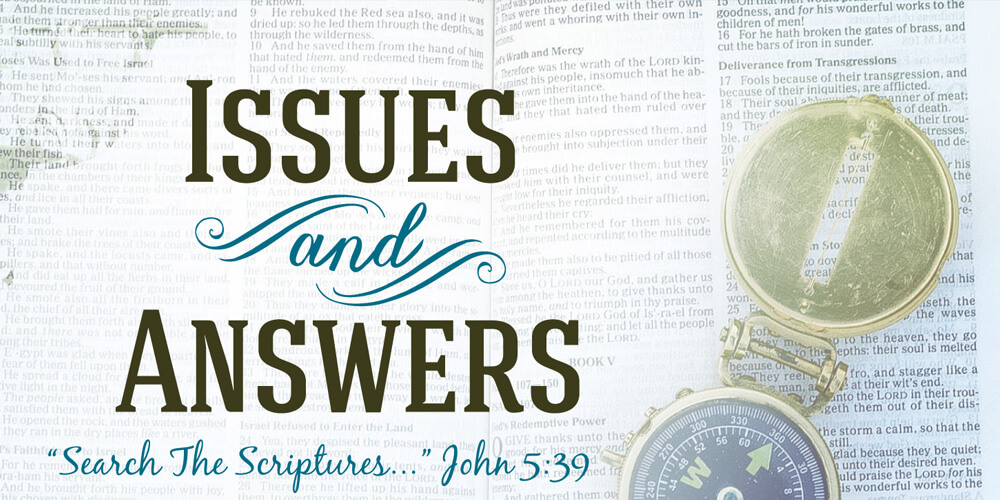Melchizedek is a unique Old Testament dignitary who suddenly appears on the scene: greeting, blessing, and fellowshipping with Abraham after the patriarch rescued his nephew Lot. The Bible introduces him as the king of Salem and priest of God Most High, meaning he simultaneously held the office of priest and king (Gen. 14:18). After a short introduction, he is only mentioned again in Psalms 110:4 and Hebrews 5-7.
Some have suggested that he was an angel but these heavenly messengers do not function as priests or kings. Others believe Melchizedek was Noah’s son Shem who was likely still alive at the time. However, Shem has a known genealogy (Heb. 7:1-3). Still others propose that he was a pre-incarnate appearance of the Son of God but that is not possible because Christ’s priesthood only began after His incarnation, death, resurrection, and glorification (Psa. 110:4). Instead, Melchizedek was likely a man whom Abraham knew but of whom little is said in the Old Testament.
In both his person and offices Melchizedek is considered a type (an Old Testament picture of Christ) of the Lord Jesus. Concerning his person Melchizedek means “king of righteousness” a title testifying to the character and reign of this godly king living in close proximity to ungodly and idolatrous nations. Salem, later to become Jerusalem means “peace.” Being the king of righteousness and king of peace he pictures the Lord Jesus, the One who is intrinsically righteous and has bought peace through the blood of the cross, whose future kingdom will be characterized by both righteousness and peace (Psa. 45:5-6; 72:2; 85:10; Isa. 2:4; 9:6-7; 11:4-5; 32:1; Luke 2:14; Col. 1:20; Heb. 1:8-9; 1 John 2:1). Having no record of his birth, death, and genealogy—in a book full of genealogies—Melchizedek symbolizes the eternal Christ (Heb. 7:3).
Considering his office of priest, since there is no record of his death (and therefore no record of his priesthood’s termination), his priesthood typifies Christ’s continuous priesthood. Melchizedek’s priesthood is greater than the later and temporary Levitical priesthood, which commenced when Israel became a nation at Mount Sinai after being redeemed out of Egypt. In the Mosaic Law, one became high priest by genealogy because the high priest had to descend from Aaron. Their priesthood was limited to the nation Israel and there was a continual succession of priests because each one eventually died.
Two thousand years ago Christ’s coming superseded (replaced) the Mosaic Law, consequently changing the priesthood (Heb. 7:12). God declared Christ to be our High Priest forever, appointing by oath One who descends from Judah, not the Aaronic family of Levi. The Levitical priesthood ceased and Christ is the believer’s High Priest according to the greater order of Melchizedek (Psa. 110:4; Heb. 7:4-10). Melchizedek had blessed Abraham and received a tithe from him demonstrating that his priesthood was greater than the Levitical priesthood that would later be carried out within the tribe of Levi, Abraham’s great-grandson (Gen. 14:18-20; Heb. 7:1-17).
Christ has an eternal priesthood, living forever to make intercession for the believer. He continues as High Priest, not by the authority of the annulled Mosaic Law but in the power of an endless life (Heb. 7:16; Rev. 1:18). Both the Father’s oath and Christ’s endless life guarantees that His priesthood will last forever.
The Mosaic Law prohibited combining the offices of priest and king (1 Sam. 13:8-14; 2 Chron. 26:16-21). But Christ is the Priest anointed to rule in a future day (Zech. 6:12-13). In that day His reign and priesthood will extend over the whole earth. “As King-Priest He shall rule this earth for God, of His mediation there shall be continual worship ascend from this earth to the throne of His Father.” When Christ reigns over this earth, God’s ideal priesthood will eliminate the distinction between the secular and the sacred by combining the office of priest and king (Zech. 14:20-21).
Melchizedek was a righteous man appointed by God to be king-priest of Salem, whom He used to strengthen and encourage Abraham. Both Psalms 110:4 and the book of Hebrews gives further light showing that he was a type of the Lord Jesus.

